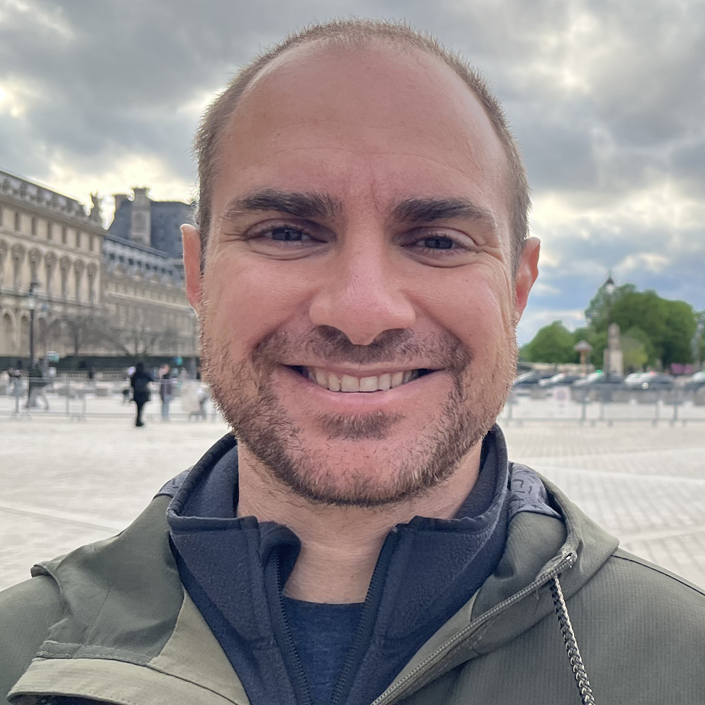Get to know: George Tzimpragos

George Tzimpragos is an assistant professor who joined CSE in the Fall of 2022. His research orbits around computer architecture, but generally crosses the entire compute stack, from circuits and computational logic to microarchitecture and programming languages.
Prior to joining the University of Michigan, he received his Ph.D. in Computer Science from UC Santa Barbara. His dissertation was on the development, formalization, and deployment of a neuro-inspired temporal paradigm that provides unique benefits when used for in-sensor processing and superconducting computing. Prior to that, he obtained his Master’s degree in Electrical and Computer Engineering from UC Davis. His alma mater is the National Technical University of Athens in Greece.
We recently sat down with Tzimpragos to learn a bit more about him.
What are the key research problems that motivate your work?
Since the inception of digital electronics, many things in computing have changed. But what has mostly stayed the same is the way in which we present and process data. That said, digital binary codes have proven their worth for general-purpose tasks. The advent of machine learning and sensing systems, however, brought to the surface arguments about the rebirth of analog computing. In this debate, I prefer not to take any sides. Instead, I see value in inventing happy mediums that combine the best of these two worlds. This line of research becomes even more intriguing when we start asking ourselves questions about computing with emerging devices, such as pulse-based superconductor electronics, or the development of systems with verifiability and security guarantees.
What’s unique about your approach to tackling these problems?
What makes my group’s work stand out is the truly holistic approach that we take. In that regard, I try to bring together a truly diverse set of people with unique skills and experiences. This wealth of knowledge helps us identify rich areas for research and leads to contributions that have the potential for a wide impact.
How do you see your work impacting society at large?
A lot of my work focuses on energy efficiency. So, the environmental impact is the first thing that comes to mind. Besides that, my research on emerging devices promises to open up completely new avenues for computing, such as quantum, that can assist broader scientific advancements. Lastly, providing correctness guarantees is of crucial importance to safety-critical systems.
What’s most important to you as a mentor to graduate students?
Our department at the University has many talented professors that can help students catch up with the state of the art and become area experts. One thing that can’t be taught through courses, however, is passion. This is what I strive to foster through my mentorship. In that regard, I love to work with highly curious students that are eager to take a leap of faith and happily explore the unknown with the rest of the group. One frequent piece of advice I give is to “trust the process”. If you put your heart and soul into what you do, it will show.
What do you expect from the students you work with?
I expect good communication, an open mindset, and a sense of responsibility. The students I am currently working with embody these values and make my work fun. Besides their excellent performances in computer science, I admire their talent across other disciplines too. For example, my first undergrad student and IA is not only a promising computer scientist but also a brilliant mathematician. My most recent IA stood out in the EECS 270 course that I taught the past semester, and is a member of the amazing UM Pops Orchestra.
When you’re not thinking about computer science, what else do you do?
I generally like the outdoors. When I was at my previous position in California, I was quite into surfing and cycling. Since I moved to Ann Arbor, I enjoy hiking in the nearby woods and am looking forward to trying out winter sports such as cross-country skiing and snowshoeing. That said, the best combination is all of these activities and research. I think it’s safe to say that most of the time I view my office as an idea execution spot and everything else as an opportunity to separate myself from my to-do list and think deeper.
 MENU
MENU 
